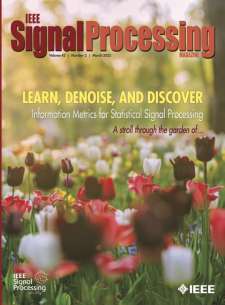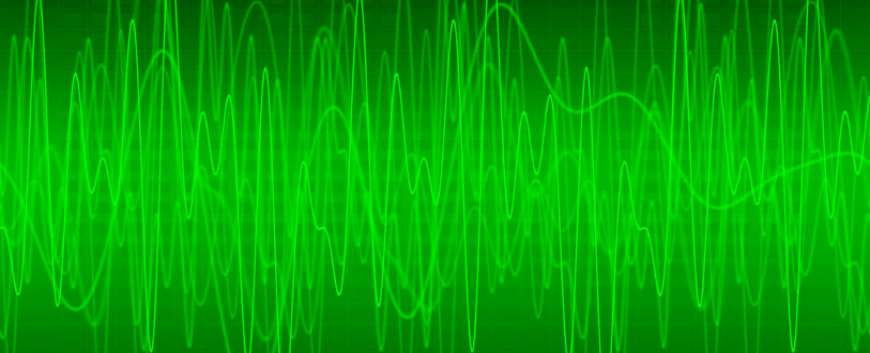- Our Story
- Publications & Resources
- Publications & Resources
- Publications
- IEEE Signal Processing Magazine
- IEEE Journal of Selected Topics in Signal Processing
- IEEE Signal Processing Letters
- IEEE Transactions on Computational Imaging
- IEEE Transactions on Image Processing
- IEEE Transactions on Information Forensics and Security
- IEEE Transactions on Multimedia
- IEEE Transactions on Signal and Information Processing over Networks
- IEEE Transactions on Signal Processing
- IEEE TCI
- IEEE TSIPN
- Data & Challenges
- Submit Manuscript
- Guidelines
- Information for Authors
- Special Issue Deadlines
- Overview Articles
- Top Accessed Articles
- SPS Newsletter
- SigPort
- SPS Resource Center
- Publications FAQ
- Blog
- News
- Dataset Papers
- Conferences & Events
- Community & Involvement
- Professional Development
- For Volunteers
- Information for Authors-OJSP
-
Home
Conferences Events IEEE Signal Processing Magazine IEEE SPL Article IEEE TIFS Article IEEE TMM Article IEEE TSP Article Jobs in Signal Processing Lectures Machine Learning Seasonal Schools Signal Processing News SPM Article SPS Distinguished Lectures SPS Newsletter Article SPS Webinar SPS Webinars SPS Webinar Series Webinar webinars
-
Our Story
What is Signal Processing?

The technology we use, and even rely on, in our everyday lives –computers, radios, video, cell phones – is enabled by signal processing. Learn More » -
Publications & Resources
-
SPS Resources
- Signal Processing Magazine The premier publication of the society.
- SPS Newsletter Monthly updates in Signal Processing
- SPS Resource Center Online library of tutorials, lectures, and presentations.
- SigPort Online repository for reports, papers, and more.
- SPS Feed The latest news, events, and more from the world of Signal Processing.
-
SPS Resources
-
Conferences & Events
-
Community & Involvement
-
Membership
- Join SPS The IEEE Signal Processing Magazine, Conference, Discounts, Awards, Collaborations, and more!
- Chapter Locator Find your local chapter and connect with fellow industry professionals, academics and students
- Women in Signal Processing Networking and engagement opportunities for women across signal processing disciplines
- Students Scholarships, conference discounts, travel grants, SP Cup, VIP Cup, 5-MICC
- Young Professionals Career development opportunities, networking
- Get Involved
-
Technical Committees
- Applied Signal Processing Systems
- Audio and Acoustic Signal Processing
- Bio Imaging and Signal Processing
- Computational Imaging
- Image Video and Multidimensional Signal Processing
- Information Forensics and Security
- Machine Learning for Signal Processing
- Multimedia Signal Processing
- Sensor Array and Multichannel
- Signal Processing for Communication and Networking
- Signal Processing Theory and Methods
- Speech and Language Processing
- Technical Working Groups
- More TC Resources
-
Membership
-
Professional Development
-
Professional Development
- Signal Processing Mentorship Academy (SigMA) Program
- Micro Mentoring Experience Program (MiME)
- Distinguished Lecturer Program
- Distinguished Lecturers
- Distinguished Lecturer Nominations
- Past Lecturers
- Distinguished Industry Speaker Program
- Distinguished Industry Speakers
- Distinguished Industry Speaker Nominations
- Industry Resources
- IEEE Training Materials
- Jobs in Signal Processing: IEEE Job Site
-
Career Resources
- SPS Education Program Educational content in signal processing and related fields.
- Distinguished Lecturer Program Chapters have access to educators and authors in the fields of Signal Processing
- Job Opportunities Signal Processing and Technical Committee specific job opportunities
- Job Submission Form Employers may submit opportunities in the area of Signal Processing.
-
Professional Development
-
For Volunteers
-
For Board & Committee Members
- Board Agenda/Minutes* Agendas, minutes and supporting documentation for Board and Committee Members
- SPS Directory* Directory of volunteers, society and division directory for Board and Committee Members.
- Membership Development Reports* Insight into the Society’s month-over-month and year-over-year growths and declines for Board and Committee Members
-
For Board & Committee Members
Popular Pages
Today's:
- Information for Authors
- (ICME 2026) 2026 IEEE International Conference on Multimedia and Expo
- Submit a Proposal for ICASSP 2030
- IEEE Transactions on Information Forensics and Security
- Submit a Manuscript
- IEEE Transactions on Multimedia
- Conference Call for Papers
- Access Restricted
- Information for Authors-SPL
- IEEE Transactions on Image Processing
- IEEE Journal of Selected Topics in Signal Processing
- IEEE Transactions on Signal Processing
- IEEE Signal Processing Letters
- Unified EDICS
- (ASRU 2025) 2025 IEEE Automatic Speech Recognition and Understanding Workshop
All time:
- Information for Authors
- Submit a Manuscript
- IEEE Transactions on Image Processing
- IEEE Transactions on Information Forensics and Security
- IEEE Transactions on Multimedia
- IEEE Transactions on Audio, Speech and Language Processing
- IEEE Signal Processing Letters
- IEEE Transactions on Signal Processing
- Conferences & Events
- IEEE Journal of Selected Topics in Signal Processing
- Information for Authors-SPL
- Conference Call for Papers
- Signal Processing 101
- IEEE Signal Processing Magazine
- Guidelines
Last viewed:
- PhD/Postdoc positions in the DNCS Group @ University of Cyprus
- Information for Authors
- IEEE Transactions on Audio, Speech and Language Processing
- Signal Processing Mentorship Academy (SigMA) Program
- Guidelines
- Submit a Proposal for ICASSP 2030
- 2025 IEEE SPS Chapter Initiative: S.P.A.R.C. – Signal Processing, AI & Real-time Computing Camp
- 2025 IEEE SPS Chapter Initiative: SIGNAL 4.0
- 2025 IEEE SPS Chapter Initiative: TechFuse 2.0
- 2025 IEEE SPS Chapter Initiative: IRIS
- 2025 IEEE SPS Chapter Initiative: SPECTRE (Signal Processing Expo and Creatathon for Technical Research and Excellence)
- Post Doctoral and Research Assistant Opportunities at Qatar University
- Chapter Resources
- Congratulations to the inaugural SPS Scholarship recipients!
- Community & Involvement
Computational MRI: Compressive Sensing and Beyond
You are here
Publications & Resources
Signal Processing Magazine
For Authors
Top Reasons to Join SPS Today!
1. IEEE Signal Processing Magazine
2. Signal Processing Digital Library*
3. Inside Signal Processing Newsletter
4. SPS Resource Center
5. Career advancement & recognition
6. Discounts on conferences and publications
7. Professional networking
8. Communities for students, young professionals, and women
9. Volunteer opportunities
10. Coming soon! PDH/CEU credits
Click here to learn more.
Computational MRI: Compressive Sensing and Beyond
The articles in this special section focus on computational magnetic resonance imaging (MRI) using compressed sensing applications. Presents recent developments in computational MRI. These developments are pushing the frontier of computational imaging beyond CS. Similar to CS, most of these algorithms rely on image representation in one form or another. However, the common recent thread is the departure from handcrafted image representations to learning-based image representations. These learned representations are seamlessly combined with clever measurement strategies to significantly advance the state of the art in a number of areas. Several exciting applications including significantly improved spatial and temporal resolution, a considerable reduction in scan time, measurement of biophysical parameters directly from highly undersampled data, and direct measurement of very high-dimensional data are reviewed in this special issue of SPM. This issue describes key ideas underlying the computational approaches used in MRI. These approaches range from CS algorithms that rely on fixed transforms or dictionaries, to adaptive or shallow-learning algorithms that adapt the image representation to the data to recent deep-learning methods that learn a highly nonlinear representation from exemplar data. The articles provide insight into the capabilities of the current algorithms, their limitations, and their utility in challenging MRI problems.
SPS Social Media
- IEEE SPS Facebook Page https://www.facebook.com/ieeeSPS
- IEEE SPS X Page https://x.com/IEEEsps
- IEEE SPS Instagram Page https://www.instagram.com/ieeesps/?hl=en
- IEEE SPS LinkedIn Page https://www.linkedin.com/company/ieeesps/
- IEEE SPS YouTube Channel https://www.youtube.com/ieeeSPS
Home | Sitemap | Contact | Accessibility | Nondiscrimination Policy | IEEE Ethics Reporting | IEEE Privacy Policy | Terms | Feedback
© Copyright 2025 IEEE - All rights reserved. Use of this website signifies your agreement to the IEEE Terms and Conditions.
A public charity, IEEE is the world's largest technical professional organization dedicated to advancing technology for the benefit of humanity.












